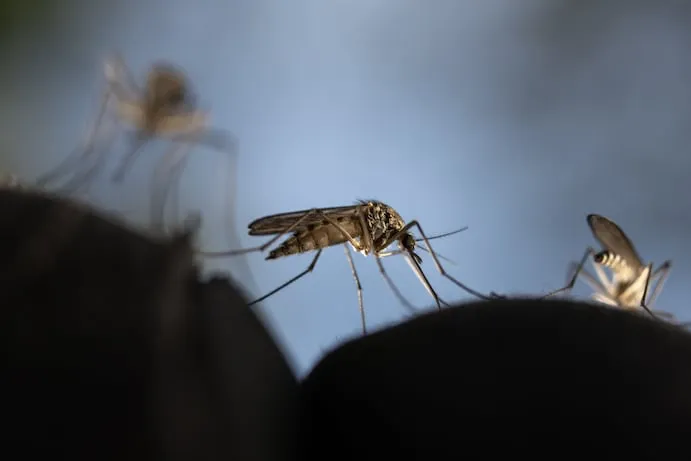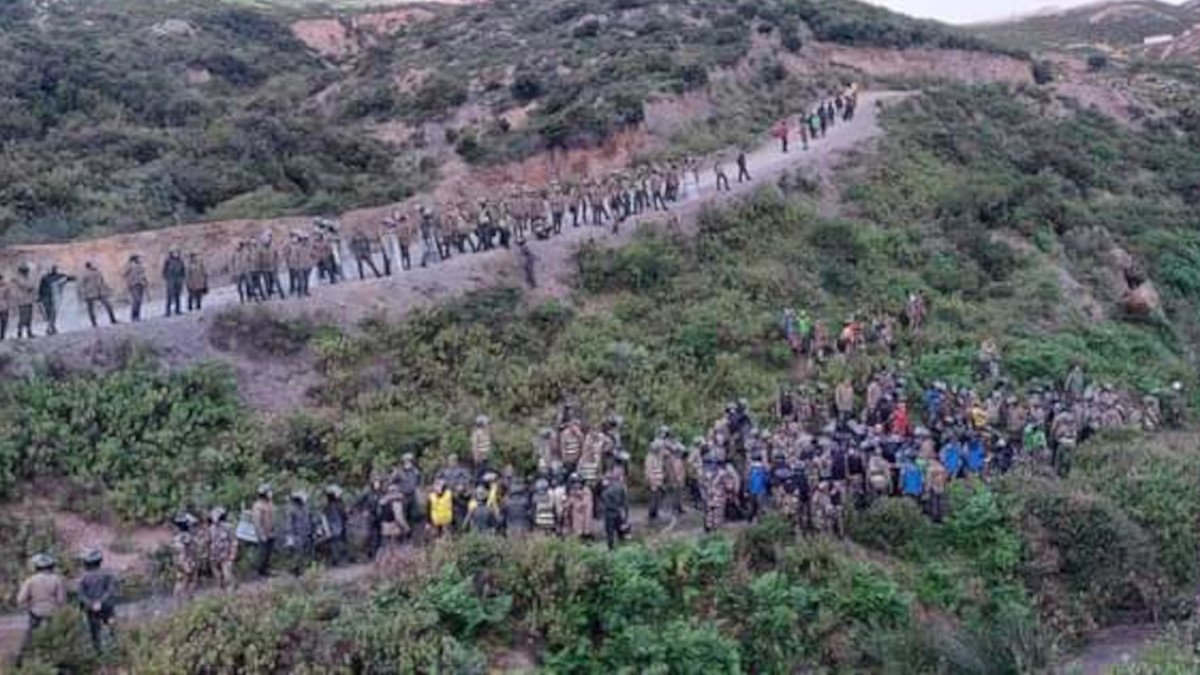A rare but deadly virus spread by mosquitoes has put nearly a dozen communities in Massachusetts on high alert, leading some towns to implement strict measures, including closing parks after dusk, limiting outdoor activities, and rescheduling public events.
This month, Massachusetts health officials confirmed the first human case of Eastern equine encephalitis (EEE) virus for the year—a man in his 80s from Worcester County, located west of Boston. As of Saturday, ten communities have been classified at high or critical risk for the virus. In response, the town of Plymouth, approximately 40 miles south of Boston, has closed all public parks and fields from dusk until dawn, the peak time for mosquito activity. Nearby Oxford has also banned all outdoor activities on town property after 6 p.m.
“We have not seen an outbreak of EEE for four years in Massachusetts,” said Robbie Goldstein, the state’s Department of Public Health commissioner, in a statement. “We need to use all our available tools to reduce risk and protect our communities. We are asking everyone to do their part.”
Eastern equine encephalitis is a serious, though rare, disease caused by a virus transmitted through the bite of an infected mosquito. According to the Centers for Disease Control and Prevention (CDC), about 30 percent of those infected with the virus die, and many survivors suffer from lasting neurological issues.
The current outbreak in Massachusetts coincides with an extended mosquito season across the United States, a phenomenon linked to climate change. As global temperatures rise, so too have the number of "mosquito days"—defined as days with average humidity of at least 42 percent and temperatures between 50 and 95 degrees. The Northeast, including Massachusetts, has experienced the most significant increase in mosquito days, with the state now averaging 14 more mosquito days per year compared to the period from 1980 to 2009.
Experts caution that prolonged mosquito seasons may elevate the risk of disease outbreaks carried by these insects, including dengue and malaria.
In an effort to curb the spread of EEE, Massachusetts health officials have announced mosquito spraying between dusk and dawn throughout this week in both Plymouth and Worcester counties. “Aerial spraying will target mosquitoes carrying the EEE virus. While these measures are crucial for reducing transmission risk, it’s vital for everyone to stay vigilant and follow personal protection guidelines to safeguard our community,” said Ashley Randle, Massachusetts Department of Agricultural Resources Commissioner, in a statement.
Residents are urged to take precautions such as using mosquito repellents, eliminating standing water around their homes, wearing clothing that covers exposed skin, and avoiding outdoor activities during peak mosquito activity hours between dusk and dawn.
Symptoms of EEE infection can range from fever, headache, and vomiting to seizures, behavioral changes, and drowsiness. Unfortunately, there is no vaccine or specific treatment for Eastern equine encephalitis.
In 2019, Massachusetts saw 12 human cases of the virus, resulting in six deaths. The following year, there were five cases and one death, according to state health records.
In a memo released Wednesday, Oxford’s town manager, Jennifer M. Callahan, mentioned that she has been in contact with the family of this year’s EEE patient, who is currently hospitalized and fighting the virus. The family shared that the affected individual had previously remarked that they rarely get bitten by mosquitoes, but had mentioned being bitten just before developing symptoms.
“They want people to be aware this is an extremely serious disease with terrible physical and emotional consequences, regardless if the person manages to live,” Callahan emphasized.



